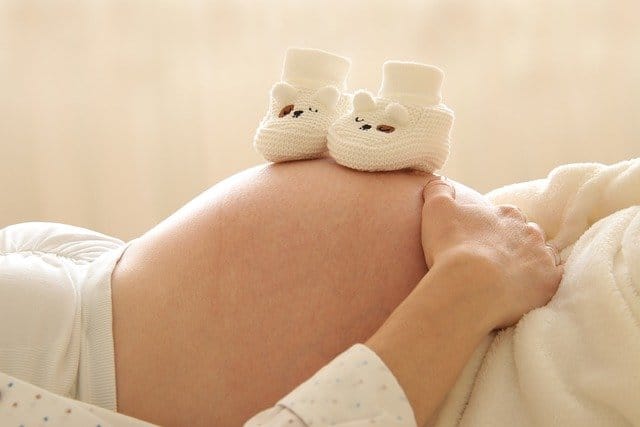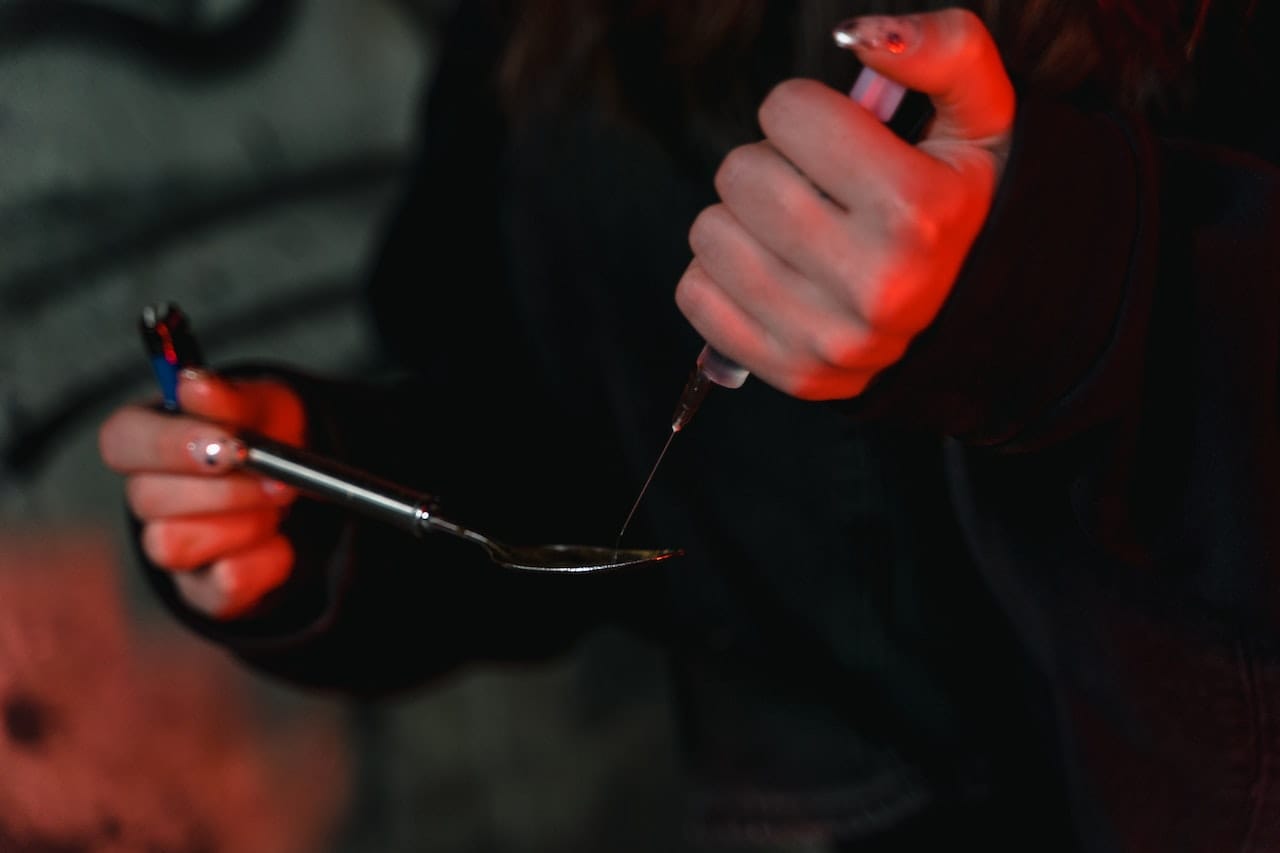Heroin – part of the opioid family of substances (highly addictive drugs) – is a powerful street drug that can cause serious effects, both in the long-term and in the short-term, and on both the body and the mind.
Although many individuals cite feelings of euphoria, relaxation, sleepiness, and a ‘rush’ to the system, there are also many negative effects that it can cause.
For example, individuals who have not taken it before, or have only recently started taking it, may feel sick or have the need to vomit, while others may experience an extreme drop in their heart and breathing rate, leading to other issues if this is sustained in the long-term.
Often, individuals may start taking heroin by crushing it into a fine powder and then snorting it, but this can quickly progress to other methods of consumption, including smoking and finally injecting.
However, all of these methods of consumption can be dangerous, especially if maintained in the long-term and if done regularly. This danger gets even more pronounced if the user is pregnant.
For more information regarding heroin and pregnancy, call our team for free on 0800 140 4690

In addition to the dangers associated with long-term and regular heroin consumption – due to both the effects of the drug itself and the methods of consumption – there are also many additional risks depending on the individual themselves and their current physical condition.
For example, this blog aims to cover the dangers of consuming heroin while pregnant, including whether the pregnant individual has started heroin consumption while pregnant, or if it is something that has been continued since they became pregnant (a heroin substance use disorder or addiction).
Heroin is a highly addictive substance, meaning that if an individual has started consuming it before they become pregnant, it may be incredibly difficult to withdraw from this, and the risks to their unborn child also increase.
Research has shown that pregnant individuals who consume heroin are often young, unmarried, and often belong to a minority ethnic group, [1] though this is not always the case.
In addition, this research cites the dangers of treating a heroin addiction while the individual is pregnant, due to the dangers associated with heroin withdrawal, and the additional substances that may be prescribed as a part of this process.

In short, most research into this area cites that heroin use while pregnant is unsafe, as it poses unnecessary risks and dangers, both to the unborn child and to the individual carrying it.
Most research into heroin use during pregnancy has found that children born after their parent has consumed heroin while carrying them are more likely to experience foetal growth retardation and neonatal withdrawal syndrome. [2]
They are also more likely to experience dangers during labour and birth, meaning that there are additional risks to the individual who is delivering the child, as well as to the child itself.
This means that a child born from an individual with heroin addiction is more likely to experience growth defects, will typically be smaller than average, and have a high chance of having to go through withdrawal when born – something which can be life-threatening in some cases.
For more information regarding heroin and pregnancy, call our team for free on 0800 140 4690

Many meta-analysis studies have found that consumption of heroin during pregnancy can lead to a higher risk of birth defects.
The most common of these include oral clefts (malformation of the baby’s mouth), ventricular septal defects (a formation of a hole between the two chambers of the heart), and clubfoot (issues in the formation of the foot’s bones, tendons, and the calf muscle), though there are many other defects that have been recorded. [3]
These defects occur as a result of the way that heroin affects the body’s growth.
When an individual is pregnant, the substances that they consume move through the body to the body of their unborn child, meaning that anything that the parent consumes, the child is likely to experience the effects of.

Premature birth – when the baby is delivered sooner than expected i.e., before the due date, or before the infant has finished fully developing – can be dangerous in some cases.
Not only can it cause issues for the individual delivering the child, but it can also mean that the baby is delivered before it is fully finished developing, meaning that additional precautions or treatments may need to be undertaken in order to sustain the infant’s early stages of life.
One study found [4] that pregnant individuals addicted to heroin and/or amphetamines were more likely to experience premature births, a low birth weight, and other life-threatening conditions to their child, including the occurrence of one stillbirth and two neonatal deaths from the total sample of 211 women.
For more information regarding heroin and pregnancy, call our team for free on 0800 140 4690

Neonatal Abstinence Syndrome (NAS) refers to a variety of different symptoms that an infant may experience before birth.
This is caused as a direct result of the parent carrying them consuming heroin or other opioids.
NAS can also refer to the process of withdrawal that an unborn child may go through in the antenatal period before it is born.
This can be incredibly risky and is often the cause of stillbirths or neonatal deaths (SIDS) in cases where the pregnant individual has consumed large quantities of heroin or other opioids while pregnant, or where they have attempted an unsafe withdrawal during pregnancy.
Most research suggests that NAS should be treated pharmacologically with substances such as morphine, [5] but the research surrounding the safety of this form of treatment is still ongoing.

Detoxification is generally the first stage of care when an individual is undergoing rehabilitation, but it can also be one of the most risky and dangerous if not carried out or supervised correctly and safely.
A detox is where the individual’s body is encouraged to expel the remaining traces of heroin that have built up as a result of their addiction. often via withdrawing from the substance or transitioning to a heroin-like substance in order to safely reduce the risks associated with heroin addiction and consequent withdrawal.
One of the most common substances used to transition individuals away from a heroin addiction is methadone.
Methadone is another substance in the opioid family of drugs, but it has far fewer and less intense withdrawal symptoms than heroin itself.
Studies in the past have highlighted the risks that may be associated with a methadone-based withdrawal when it comes to pregnancy and maintaining the health of any unborn children, due primarily to the rates of stillbirths and neonatal deaths, but more recent studies suggest that this may be a safer method of withdrawal, [6] often leading to a high rate of safe births and fast recovery.
For more information regarding heroin and pregnancy, call our team for free on 0800 140 4690

As mentioned in the paragraph above, there are many medical treatment options that an individual may be able to approach a safe heroin withdrawal while pregnant, and with minimal risks to their unborn child in the process.
However, it is always important to assess all options, as some treatment plans may be more effective than others depending on the individual’s history with heroin addiction, as well as other personal factors that may affect their pregnancy in general.
The following subheadings outline some of the key features and methods of a heroin withdrawal treatment programme, as well as some of the risks that may be associated with this.

As heroin is known as a physically addictive substance i.e., it makes physical changes within the body that can be life-threatening to withdraw from and treat, there are many complex methods that are put into place to help minimise the risk to both the pregnant individual and the unborn child that they are carrying.
Transitioning from heroin to a heroin-like substance, for example, is one of the safest ways to withdraw from long-term heroin addiction due to the similar nature of the substances, but differences in the ways that the body withdraws and recovers from these substances.
Both methadone and buprenorphine are from the opioid family of substances, but both are considered generally less harmful to an individual during the withdrawal process, especially if the individual is carrying a child.
This stops the need to go ‘cold turkey’ from heroin – something that often ends in death or serious withdrawal complications that pose huge risks to the parent and infant’s long-term health.
For more information regarding heroin and pregnancy, call our team for free on 0800 140 4690

Withdrawal symptoms are experienced as a result of cutting down or withdrawing from a substance that the individual has been addicted to for a long period of time.
For heroin withdrawal, for example, individuals are always encouraged to seek professional help due to the extreme nature of these withdrawal symptoms, as well as the dangers that are associated with an unsupported or unsupervised withdrawal attempt.
As well as the risks to the physical body i.e., the dangers to different organs as a result of high heroin concentration, some studies have also highlighted the risks to the individual’s mental health, [7] including a higher risk of depression and high levels of stress hormones throughout the withdrawal process.

When a pregnant individual consumes heroin, they are also exposing their unborn child to the risks, dangers, and effects of the substance.
As an under-developed and high-risk life stage, this can be incredibly dangerous to their well-being and survival rate once outside of the womb.
In some cases, this unborn child may end up undergoing withdrawal while still in the womb, especially if their parent has decided to undergo withdrawal themselves before giving birth.
Though this is a risky process, there are some instances in which it can be undertaken successfully, and the unborn child can benefit as a result of this.
In all cases, it is important to discuss any withdrawal plans with a medical professional to ensure that this is the safest option for the pregnant individual, as well as for the child that they are carrying.
For more information regarding heroin and pregnancy, call our team for free on 0800 140 4690

Though there are no direct physical impacts of the child’s father or other parent consuming heroin during their partner’s pregnancy, there are more mental risks that may be experienced as a result of this.
For example, if the pregnant individual’s partner is addicted to heroin and consuming it on a regular basis, then they may be less likely to take on a supportive role throughout their partner’s pregnancy.
This could mean missing out on important check-up dates and meetings, being unaware of the process of pregnancy and birth, and generally being absent from the support and care of their partner.
In turn, this can affect their unborn child as it may not receive the support and care it needs from both parents, leading to difficulties later in life.

Antepartum, Intrapartum, and Postpartum care – referring to the support before the birthing process, during the birthing process (from the beginning of labour to the delivery of the placenta), and after the birth – are all essential when considering the care of the pregnant individual and their unborn child.
Although treatment of withdrawal and the different conditions that an individual may experience as a result of simultaneous heroin addiction and pregnancy have been mentioned, it is also important to remember the different forms of support that this individual may require throughout the later stages of pregnancy and the care of their newborn.
These forms of care should always be considered long before the infant’s birth, as this will make the process far easier and less stressful on the parent when it comes to it, rather than worrying about last-minute details once the birthing process has begun.
For more information regarding heroin and pregnancy, call our team for free on 0800 140 4690

Although most symptoms of NAS are evident at birth, parents of children who may have undergone NAS as a newborn should also consider their child’s development as they grow older.
For example, many studies encourage parents to track their child’s motor skills, vision and cognitive development during their early years in order to assess whether or not they will struggle with issues later in life. [8]
This should also be monitored by a medical professional (including professional medical care) in order to track any life-threatening changes and ensure the child’s long-term health and well-being.

To learn more about heroin, its effects, and how this can impact different conditions, take a look at any of our other web pages, or get in contact with Rehab 4 Addiction directly.
Our friendly addiction support team is here to answer any question confidentially and professionally, with a no-judgment policy and manner in place.
To contact us, call our addiction support line on 0800 140 4690 today to start getting the help you need for yourself or a loved one